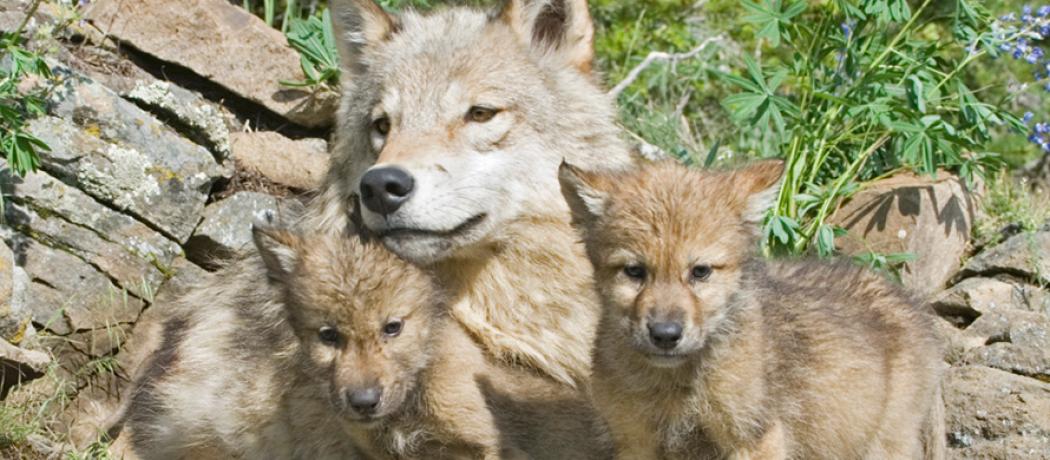I often witnessed the most heartwarming sight while doing my weekly post–hip replacement rehab exercises on a stationary bike next to a window at the West Vancouver Community Centre. Little kids, probably 3 or 4 years old, happily and with visible eagerness holding onto their father’s hand as they were coming into the building, probably for a bit of swimming or some playful exercise. Recalling my pleasure at seeing such lovely examples of father-and-child bonding, I thought I would write a blog article for Father’s Day. I did quite a bit of research, reading learned papers about the evolution of the human father, when I discovered that we, as fathers, can hardly match what wolf fathers do.
Wolf fathers help feed, protect, and play with their pups. In addition, male wolves in their roles as grandparents, uncles, or siblings also give parental care to the pups. The father wolf does the hunting while the females are keeping the newborn pups safe. As I was reading about the wolf, my interest in rehashing the uncertainties of evolutionary, anthropological, and historical data about the rise of the human father diminished, and I began searching for more evidence of active fatherhood in non-human creatures.
- Male emperor penguins alone incubate their eggs. Once the eggs are hatched, the female rejoins the family.
- Male beavers look after the newborns along with the females in the first few hours after birth. The fathers then teach the young how to search for building materials needed to repair their dams before they disperse to find their mates.
- Dolphin fathers help the mothers hold their newborns on the surface of the water until the young are ready to swim on their own.
- Goose, swan, gull, and loon fathers patrol the end of the line of chicks while mothers lead the way when traveling on water.
- Male catfish and some frogs carry eggs in their mouths until they hatch.
- The male seahorse goes to the extreme: when the female seahorse deposits eggs into the pouch on the male’s abdomen, he releases sperm into the pouch to fertilize the eggs and then carries the embryos around till it is time for them to hatch.
In contrast with these exemplary dads, horse and boar fathers have no role in parenting, domesticated male dogs and cats show little interest in their pups or kittens, and male lions only barely tolerate their cubs. Papa bears are even less fatherly, leaving the female partner after mating and sometimes even eating one of their own cubs.
Few males of the primate species look after their young, with the very definite exception of the human father. That is why we have celebrations on Father’s Day, this year on Sunday, June 21.
Happy Father’s Day, dear old Dad! And many more!
—George Szasz, CM, MD
Suggested reading
Dewar G. The evolution of fatherhood. Parenting Science. https://www.parentingscience.com/evolution-of-fatherhood.html.
Father. Wikipedia. Last modified 7 June 2020. https://en.wikipedia.org/wiki/Father.
Kraemer S. The origins of fatherhood: An ancient family process. Fam Proc 1991;30:377-392.
This post has not been peer reviewed by the BCMJ Editorial Board.

